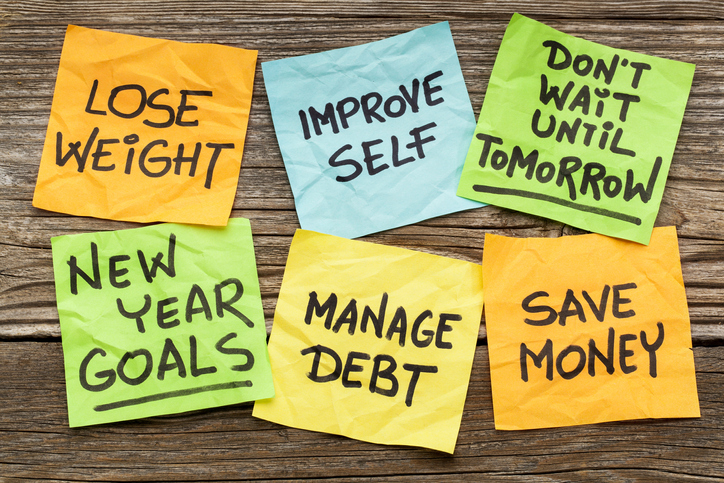For many, the New Year represents a time of renewal. A time when we decide whether to continue down our current path, attempt a previously ventured journey, or start down a new one entirely. It is when we choose to take on the challenges of breaking old negative patterns of behavior and setting new positive intentions for our future. We recognize this desire through the practice of establishing New Year’s Resolutions and the time for them is now.
In this article, I am going to address some of the most prevalent problems and obstacles people face when setting and attempting to follow through on their resolutions and then follow them up with professional perspective and advice to help you navigate them. This really can be your year!
A lot of people would argue that one of the biggest flaws with New Year’s Resolutions is that people feel so pressured into coming up with these huge, extravagant goals that they end up setting unrealistic ones. That in the heat of emotions, they overestimate themselves, shoot beyond the stars, and therefore set themselves up for failure right off the get go. The idea of someone feeling pressured into creating a goal at an inopportune time or simply to appease others and fit in is never ideal. Make sure that when setting a goal, it feels aligned with who you are and what you truly want. I have yet to come across a legitimate goal that was out of reach; we are capable of the most extraordinary things when we are up for it. What ends up happening though is not that we overestimate our capabilities but underestimate exactly what is going to be required of us. Because we can get so caught up emotionally in our resolutions, we fail to see the whole picture, how much effort, time, and/or sacrifice it is going to take. Be sure to take an honest look at your goals and make sure you are willing to do put in all the hard work it is likely going to require. If not, the other option is to scale it back. Create smaller goals that are much more aligned with where you are right now but ones that are bound to benefit you when you are ready to take the next step.
Another problem that tends to arise is not being specific enough, being too vague, or half-hearted. All the time I see goals like, “I want to lose weight,” “I want to eat healthier,” “I want to make more money.” Those goals lack specificity. If they are too vague, then we cannot create a clear, concise plan of action to move towards their attainment. What exactly does losing weight look like? How many pounds? What date do I want to be down to that weight by? What specifically about my health am I trying to improve? What does the result look like. Creating a clear vision of what the result looks like is the first step. You can never be too specific. The effort this takes is a form of investment, something that requires we put our energy into it. If we just “kinda sorta” have a goal that is not written down, or just sounds like a great idea, we are bound to get distracted and lose sight of it. Take some time to really think it through and make sure it means something to you.
Without specificity, we cannot create a tangible plan of action, accountability, and the capacity to track progress. How do you know you are on track with attaining your goals and making progress? What tools are you using to monitor your progress? What measures do you have set in place to hold yourself accountable? Is there someone else you can bring into your resolution to help you? Make the investment and write out your plan of action in as much detail as possible. Failing to plan is planning to fail. Of course, there are going to be unforeseen obstacles that come up along the way, but I promise, taking these steps is going to put you in a much better position to navigate them when they arise.
This year doesn’t have to be like the rest. Be specific about your goals, be honest about what it is going to take to get there and write out your plan of action in detail. These steps are going to give you an incredible edge when taking on whatever challenge you have in store for yourself.























